![[Interview] Evolving the world's deliciousness with cooking robots](https://ecosystem.metro.tokyo.lg.jp/wp-content/uploads/2024/03/techmagic-topimgpc.jpg)
![[Interview] Evolving the world's deliciousness with cooking robots](https://ecosystem.metro.tokyo.lg.jp/wp-content/uploads/2024/03/techmagic-topimgpc.jpg)
TECHMAGIC Co., Ltd., a member of the Tokyo Consortium, is a deep tech startup that challenges the labor shortage problem in the food industry by developing automatic cooking robots. In this conversation, Ken Imura, who supports his company TECHMAGIC as part of the Tokyo Consortium Deep Ecosystem, spoke to the company's representative director/CEO Yuji Shiraki about product features and business strategy. .
Yuji Shiraki [Photo left] (TECHMAGIC Co., Ltd.)
Listener/Facilitator: Ken Imura [photo right] (Tokyo Consortium Deep Ecosystem)
(Titles omitted)
Imura: First, please give us an overview of your company's business.
Shiraki:Based on our mission of ``enhancing the quality of human happiness with robot technology,'' we aim to evolve the ``deliciousness'' of food around the world and improve the quality of human happiness. We are developing a business robot business. Japan's food industry is divided into three major segments: eating out, ready-made meals, and eating at home. We mainly provide cooking robots in the restaurant field, and we have introduced business robots in the ready-to-eat food field.
The cooking robot currently covers three types of cooking: boiling, stir-frying, and frying. In the area of ``boiling,'' we have installed pasta cooking robots for the restaurant chains ``PRONTO'' and ``Evino Spaghetti'' operated by Pronto Corporation, and in the area of ``stir-frying,'' we have installed a stir-fry robot for the Chinese chain ``Osaka Osho.'' We are currently working on a joint project with Kentucky Fried Chicken's KFC in the area of deep-frying.
Regarding commercial robots, we are collaborating with Kewpie to automate plating work at food factories. Approximately 60 people in Japan are engaged in the work of preparing side dishes and bento boxes, but 83% of companies are experiencing a labor shortage. Under these circumstances, we are collaborating with Kewpie to automate the plating of side dishes, which is the simplest task but still requires human hands.
Imura:thank you. There are thousands of startups in Japan, but the ones that work on cooking robots are rare, and I think their services are extremely original. So, could you tell us about how you came to start your business and why you decided to start a cooking robot business?
Shiraki: In 2017, when I was working at Boston Consulting Group (BCG), I visited my grandmother, who loved to cook, and realized that she was no longer able to cook due to her age. Although her grandmother was single and lacked the motivation to cook for herself, she still had a desire to eat delicious, healthy meals. Seeing this situation firsthand made me think that if there was a world where even people who have difficulty cooking could enjoy cooking according to their tastes, the quality of the eating habits of elderly people like my grandmother could be improved. That's when I came up with the idea of a cooking robot.
Later, as I was formulating a business plan, I realized that developing a cooking robot for individuals was a high risk, and the probability of success at that stage was low. However, as I researched the restaurant and ready-made meal industries, I discovered that the problem of labor shortages was becoming increasingly serious. In addition, from a macro perspective, the social implementation of AI robot technology was expected to accelerate. As a result of combining these two elements, we started by providing cooking robot services to corporations and pivoted to helping them.
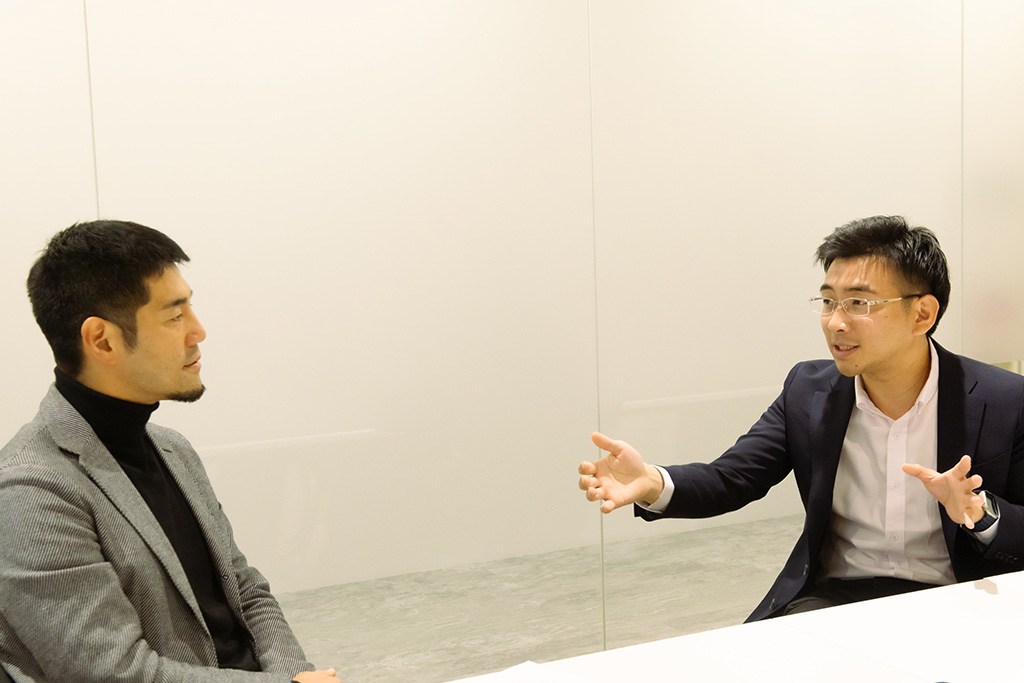
Imura:I would like to ask you about your career before starting your own business. Who influenced your venture mindset?
Shiraki:I grew up in an environment where my grandfather, father, and other relatives were all involved in various businesses, so I think they had a big influence on me. In particular, my father has a strong entrepreneurial spirit, and even after the company that had been in business for four generations went bankrupt when I was in elementary school, he believed that it was important to create new value in the world and started his own business again. It was a person. He often said, ``The interesting thing about being an entrepreneur is that you can have a positive impact on a lot of people,'' and I think that way of thinking has had a big influence on me. At that time, if I wanted to become an entrepreneur in the future, I wanted to be active globally, so I went to Canada to study abroad during high school. The high school where I studied abroad created an online service for dispatching private tutors while I was there. That's my first business.
Imura:I heard that you were influenced not only by your father but also by your grandfather.
Shiraki:I also learned important things from my grandfather, who was also a businessman. His grandfather always said, ``The most important path is to be of service to the world and to the people.'' When I was a child, I didn't really understand what that meant, but after starting a business, I realized that the purpose of business should not just be to make money, but to accumulate virtue for society, industry, and companies. Now I can understand that. If we can achieve this, we believe that the money will eventually follow. The first thing that matters is how we can provide value to society, industry, and customers, and how we can accumulate virtue. I learned this way of thinking from my grandfather.
Imura:Does this idea influence your company's mission and vision?
Shiraki:I agree. I believe that this way of thinking must be the basis of not only our mission and vision, but also all decision-making as a manager. We believe that long-term contributions to companies and industries are more important than mere short-term sales.
Imura:Why did you decide to sell the business you started when you were a student and work at the consulting firm BCG?
Shiraki:The reason I joined BCG was because I wanted to systematically learn strategies and problem-solving methods to compete in a larger market rather than a small business. By participating in numerous projects, I learned how to formulate business strategies and create social impact in response to the management issues faced by large companies, and I am confident that this will be useful for the management of Tech Magic. I can say it with this.
Imura:Did you start your own business soon after the episode you mentioned earlier with your grandmother during your time at BCG?
Shiraki:After deciding to start a business using cooking robots, I felt that I first needed to deeply understand the field, so after retiring from BCG, I worked part-time at the family restaurant Gusto. This is my secret work history (lol). The reason I worked at a family restaurant is because it is a business that incorporates all the major cooking methods: boiling, stir-frying, frying, and grilling. Also, Gusto has a large number of stores, so I thought I could learn a lot from its operations, so I gained experience in the kitchen. And in February 2018, he established TECHMAGIC Co., Ltd.
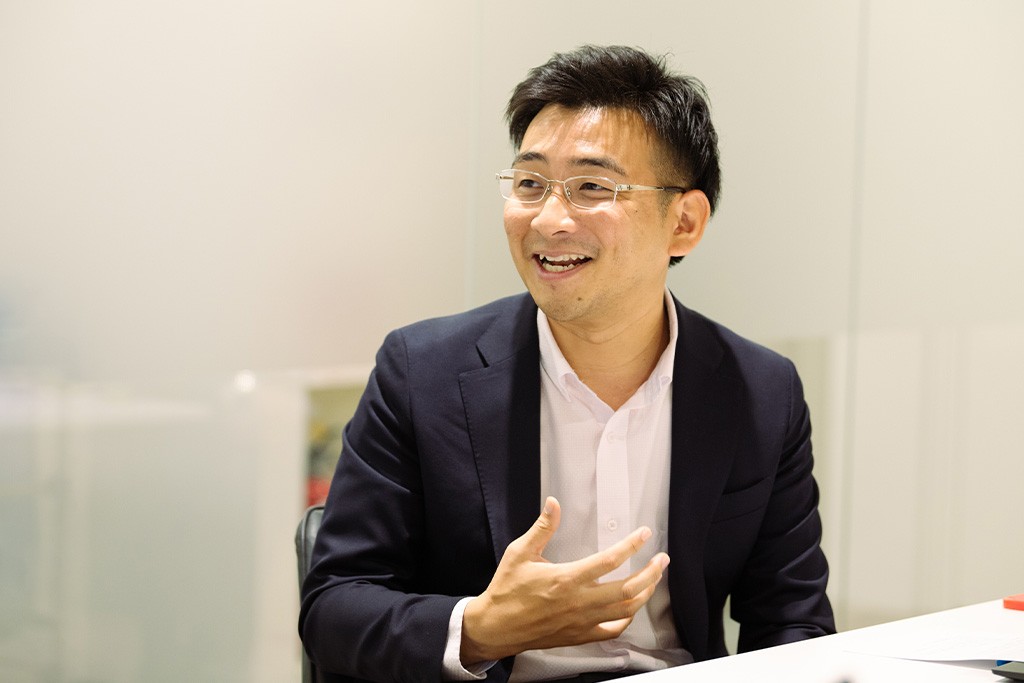
Imura:I heard that you decided to develop cooking robots to solve the social issue of labor shortages. What is your company particularly conscious of when creating robots?
Shiraki:In order to solve the labor shortage problem, it is important to create a product that can save labor by one person, not by 0.5 people. Furthermore, in order to save labor on a per-person basis, in addition to the cooking processes of "boiling," "stir-frying," and "frying," it is essential to automate the pre- and post-processes involved. For example, in the case of the pasta cooking robot installed by Pronto Corporation, it takes the sauce and ingredients from the refrigerator, boils and stir-fries them, and cleans the frying pan after cooking. We are automating the process. By doing so, customers feel the effect of reducing the number of employees by 1 to 1 people.
Imura:The ability to save labor and deal with labor shortages is a clear advantage. On the other hand, I think cost is also an important factor. Even if it is possible to reduce manpower, companies may hesitate due to the high initial and maintenance costs. What do you think about this?
Shiraki:I think it is extremely important to control the labor cost ratio at restaurants by firmly reducing personnel costs. Let me introduce an example of when a stir-fry robot was introduced at the Osaka Osho Nishi Gotanda store. After introducing three stir-frying robots on a test basis, the store's labor cost ratio decreased by 3% compared to 30% before introduction. As a result, profit margins have increased by approximately 8.5%.
Imura: That's amazing.
Shiraki: The effects of labor saving are clearly reflected in the PL (profit and loss statement). Generally speaking, the average profit margin for restaurants is said to be 2%, but I think the fact that the profit margin has increased by 10% shows the contribution of cooking robots.
Imura: That's wonderful. I am also involved in matching and supporting collaboration between large companies and startups, but in many cases it is difficult to see how much open innovation is contributing to PL (profit and loss statement), and it takes time to realize it. Masu. I think it is rare to see a clear effect immediately after introducing it, like the case of Osaka Osho. As I work in sales myself, I feel that customers are often not convinced unless quantitative numbers are presented. In that sense, I think it is extremely effective to be able to provide specific numbers. On the other hand, I think there are some difficulties in automating all tasks simply by introducing robots. What do you think about that?
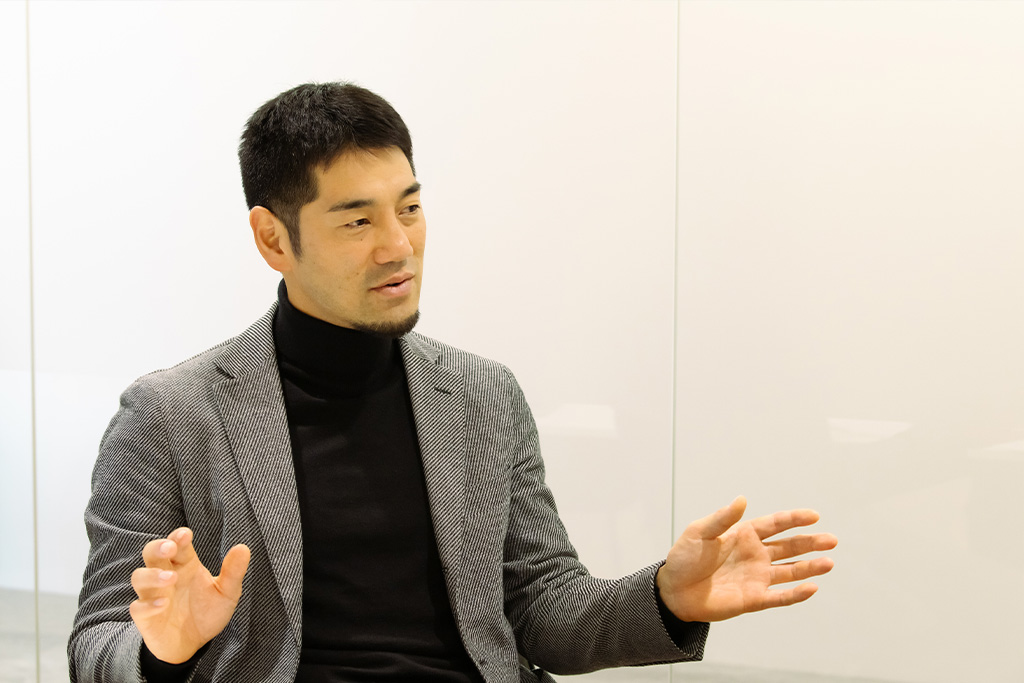
Shiraki:For example, even within the same category of Chinese food, different restaurants have different menus, so there are many different operations. Therefore, unlike SaaS (Software as a Service), it is not possible to create something once and apply it everywhere; we believe that our mission is to figure out how to automate operations that differ from store to store. To achieve this, we need to expand our product portfolio. It is generally said that focus and selection are important for startups, but we ignore that theory and develop diverse solutions with a variety of customers. There are still many operations that have not been resolved despite requests from customers. I think we need to develop partner robots that can be used immediately by more customers by expanding our product portfolio and functionality.
Imura:I think one of the features of your company's cooking robot is the fusion of hardware and software. Could you please tell me more details?
Shiraki:There are companies all over the world that handle cooking robots. Many of them use arm robots and aim to automate control using software, but we are developing not only the software but also the hardware from scratch. One of our company's strengths is that we design from scratch, thinking, ``Let's integrate this kind of hardware and software for this operation and automate this work.''
When developing a cooking robot, important factors are ``defining the scope of automation,'' ``ability to work at the same speed as humans,'' ``size,'' and ``cost.'' I think our strength is that we can create completely new operations by carefully designing the hardware and installing software that works optimally within it.
Imura:Are there any business types that are compatible with cooking robots and business robots?
Shiraki: An example of a business format that is compatible is the fast food industry. Businesses that repeatedly make the same category of products, such as Chinese stir-fry dishes, are a good match for our robots because they increase the robot's utilization rate. On the other hand, in businesses such as izakaya bars that provide a wide variety of products in small quantities, robots tend to be less efficient and the robots themselves tend to be larger. Therefore, the fast food industry is considered suitable for automation.
Imura:Since the topic of the fast food industry came up, I would like to ask about your company's current collaborations with Pronto Corporation, Osaka Ohsho, and KFC. First of all, could you tell us about the robots that Pronto Corporation has introduced and their features?
Shiraki:Pronto Corporation has introduced a robot called ``P-Robo''. The "P" stands for pasta, and to date this robot has cooked approximately 10 meals.
The work process using P-Robo is as follows. First, after receiving an order from a customer, the sauce and ingredients are automatically measured, and the noodles are also automatically supplied. While the noodles are being boiled, a robot brings the ingredients, receives the noodles, and begins cooking. Cooking times and temperatures vary from recipe to recipe and are all controlled by parameters. Once the food is cooked, it is transferred to a serving table, plated, and washed. In this process, robots do everything except plating. During the development stage, we considered automating the plating, but rather than automating everything, we decided to distinguish between areas with high and low added value for the customer and automate only those areas with low added value. . Since presentation is related to appearance, we decided to continue to let our staff arrange the presentation and toppings so that they look beautiful.
Previously, it took about 5 minutes to provide services to customers using manual operations, but with the introduction of P-Robo, the delivery time can now be reduced to about 1 minute. As a result, we were able to save 1 to 2 people. The difference between 5 minutes and 1 minute occurs because all processes must be performed by one person when done manually, and it is difficult to perform multiple tasks at the same time. On the other hand, P-Robo uses a line production method, where different processes are progressing at the same time in different locations. This made it possible to save time.
Imura:Not only will it contribute to PL, but it can also be expected to increase sales by improving customer satisfaction. Improving productivity, especially during peak hours, will have a significant impact on sales. Next, regarding Osaka Osho, please tell us about the robots you introduced and their results.
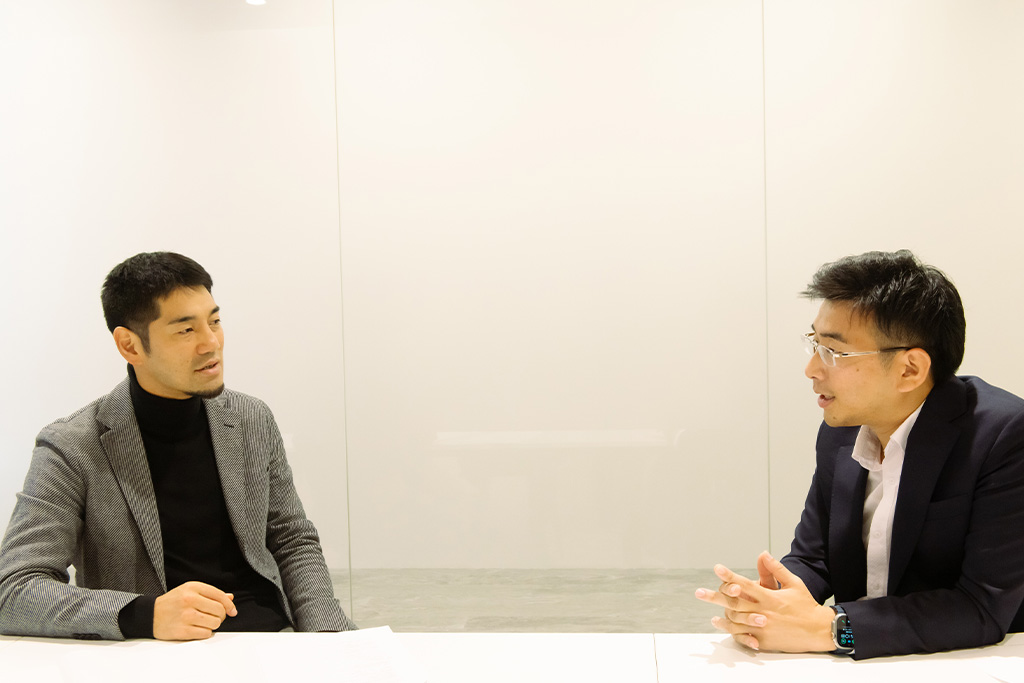
Shiraki:P-Robo, which was installed by Pronto Corporation, was a relatively large robot, but we had a sense of the challenge of how to make the robot smaller. Against this background, we developed a robot that eliminates the "boiling" function and specializes in "stir-frying". This new robot is named I-Robo. I-Robo's main features are automatic stir-frying, automatic cleaning after cooking, and optionally automatic seasoning. Similar to P-Robo, various recipes can be uploaded to the cloud and reproduced. As for Osaka Osho, this I-Robo can reproduce other stir-fried dishes other than Tenshinhan's fluffy egg.
Osaka Ohsho has its own cooking certification exam system that judges the speed and quality of cooking at three levels, from 1st grade to 3rd grade. Level 3 is a high level that only 1 people out of 500 people hold, but this stir-fry robot has reached the point where it can completely copy the level of Level 17 in just six months. It has the ability to reproduce first class level speed and quality. Given the challenges of the time it takes to train craftsmen, talent shortages, and an aging population, craftsmen will be able to focus on high-value-added activities, such as recipe development and reproduction. In other words, it can contribute to the creation and optimization of a company's sustainable system.
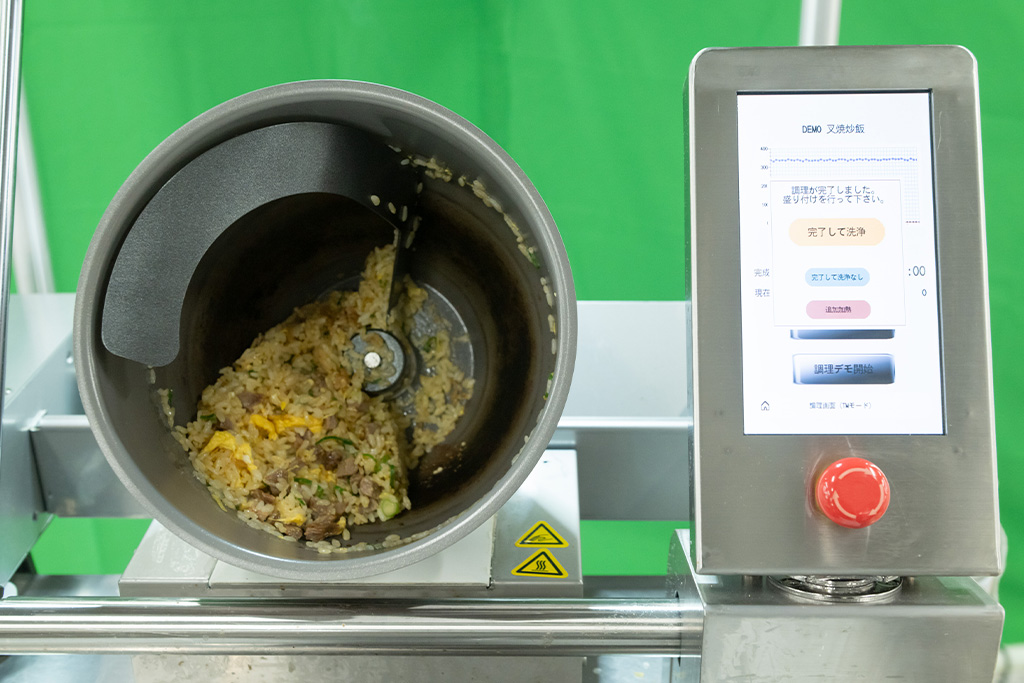
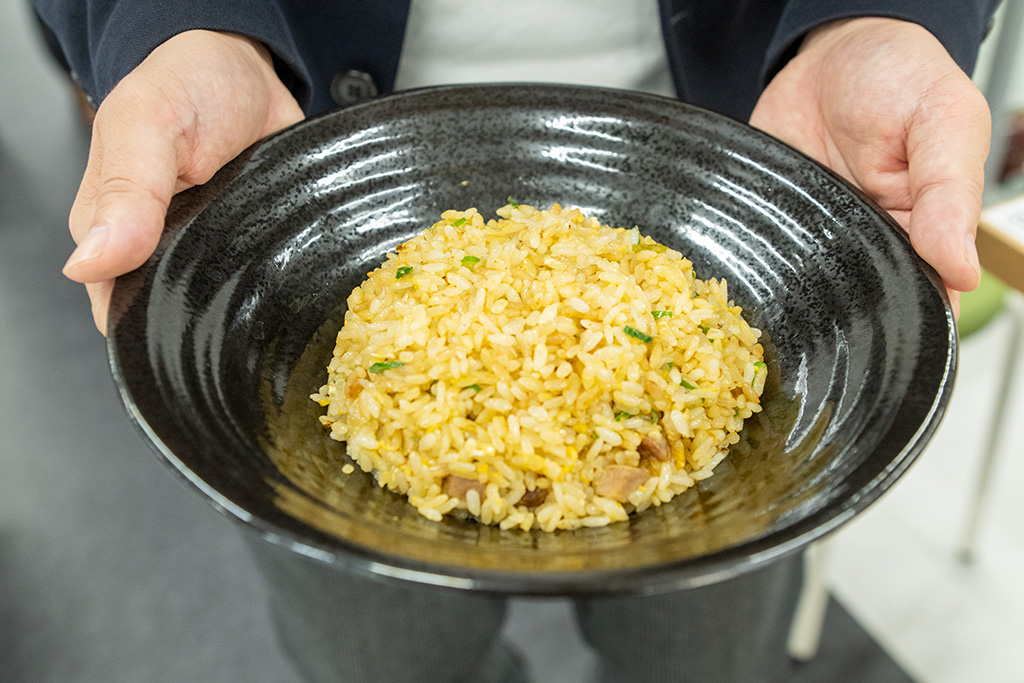
Imura: So you're focusing on assigning people to more intellectual and creative work, and placing them in the right jobs. By the way, both Pronto Corporation and Osaka Ohsho are operating chains and have various stores, but do they have POC* at each store? Or, once one thing is decided, can it be expanded horizontally?
*“PoC (Proof of Concept)” is translated as “proof of concept” in Japanese. This refers to a series of verification activities to confirm whether the ideas and technologies used in services and products are feasible.
Shiraki:Basically, if it works in one location, similar operations are possible in other stores. Osaka Osho alone operates about 350 stores and currently has three robots per store, so if all stores could be automated, there would be about 1 robots in operation. Masu.
Imura:If we realize this, our business performance will increase significantly. By the way, do you have any plans to incorporate subscriptions?
Shiraki: We are introducing a recurring (continuous billing) model. For example, in the case of this stir-fry robot, the installation cost is approximately 10 yen per month. The labor costs for one employee are expected to be around 60 yen per month, so even if we were to introduce three machines, we would be able to operate it for about half of the labor costs.
Imura:thank you. Next, please introduce the case study of KFC.
Shiraki: We are working with KFC JAPAN to automate the preparation of french fries. In this project, we are developing a device that automates a series of tasks including pre- and post-cooking processes, from supplying ingredients to cooking and final packaging. There is a risk of oil splashing and burns when frying. KFC wants to provide an environment where employees can work happily, and as part of that effort, they are working on automating the process of making french fries. Currently in the development stage, test implementation is scheduled to begin in fiscal 2024.
Imura: Lastly, could you also introduce the case study of Kewpie?
Shiraki:We are currently working on a project with Kewpie regarding the presentation of side dishes. What we are developing is a robot that is equivalent to a single worker. The special feature is the precision of the arrangement. It has the ability to accurately serve the specified number of grams within the tolerance range (minus 0 grams, plus 8%). There are examples of other companies plating individual items like fried chicken, but even with sticky ingredients that are difficult for robots to work with, it is possible to accurately plate the specified amount with 99% probability.
Imura:What kind of products does Kewpie apply this robot technology to?
Shiraki: Kewpie is a large company that operates approximately 80 production bases, producing products such as potato salad for supermarkets and convenience stores. What we are developing is a robot specialized for such plating work at production sites.
Imura: Unlike the three companies mentioned above, Kewpie has a capital alliance with your company. I think Kewpie's expectations for your company are especially high. Specifically, what are your company's expectations?
Shiraki:This time, we received a series C investment of 10 billion yen. I believe that these expectations include an evaluation of our robot technology and robot AI technology. We also hope to contribute to the Kewpie Group through rapid development as a startup.
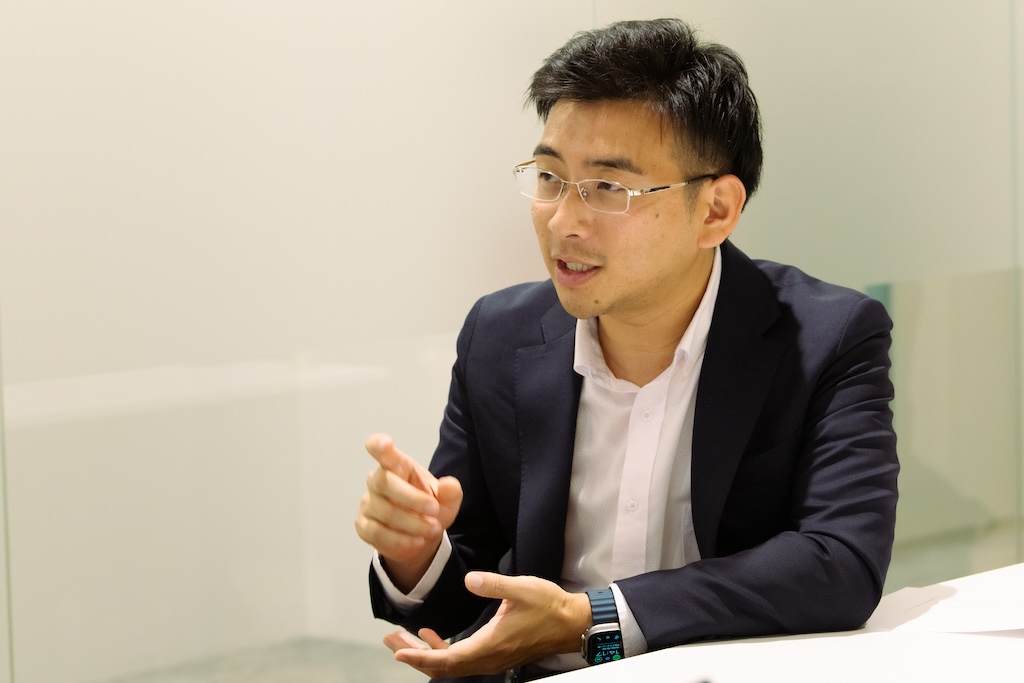
Shiraki:The Tokyo Consortium recognizes that its purpose is to support the global expansion of startups and how to grow them into unicorn-level companies. Of course, as a deep tech company aiming to become a unicorn, we are also being asked how we can compete globally. I thought it would be very reassuring to have the cooperation of Tokyo Consortium, which is strong in startups, and be able to access key people in companies that we cannot approach, so I applied.
Imura: Could you tell us specifically about the support you received from the Tokyo Consortium that was particularly helpful?
Shiraki:First of all, I am glad that I participated in the Tokyo Consortium. The main advantage is the provision of contacts with large companies. The support I received as a mediator was extremely helpful, not only by simply introducing me, but also by attending meetings and coordinating matters.
Also, as a startup, improving brand awareness is an important element. I am very grateful that I was able to have the opportunity to network with people involved in startups both domestically and internationally through invitations to events such as City-Tech.Tokyo and CES.
At regular meetings, we received high-level advice and interviews regarding our issues. Being in the position of an advisor who can provide advice from a different perspective than that of the company or customers is extremely reassuring for entrepreneurs.
Imura: I would like to ask you about future business development. What are your thoughts on the direction of business development, both domestically and internationally?
Shiraki:We aim to gain the No. 1 position not only in Japan but also in the global market in the field of cooking robots and business robots. We believe that this will have a major impact on the industry. This requires several important efforts.
First, we will expand our product portfolio and develop partner robots suitable for various companies. Next, it is important to expand digital content such as recipe automation and recipe reproduction by artisans. I think that if this know-how is accumulated, the food infrastructure will change slightly. For example, restaurant companies may be able to develop their business without having a storefront. I can see a future in which cooking robots installed in university cafeterias will create new sources of income by downloading Osaka Osho's recipes and cooking them.
Developing a wide range of hardware products and accumulating content is critical to establishing leadership in the global market. In order to achieve this, it is extremely important for our strategy to strengthen collaboration with large companies, major food manufacturers, major restaurant chains, etc., and continue to work closely with the front lines.
Imura:Please tell us about the significance and importance of your company expanding into overseas markets.
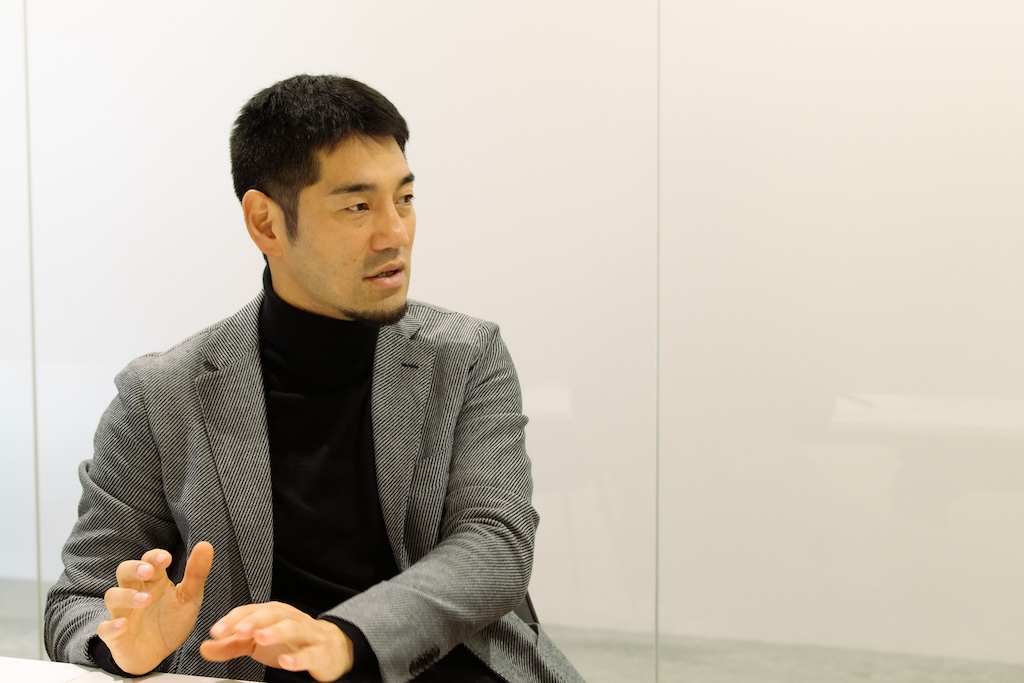
Shiraki: It is natural for the domestic market to shrink due to population decline, and low labor costs in Japan are difficult for robot ventures. However, when looking overseas, labor costs in countries such as the United States, the United Kingdom, and Australia are more than double, and in some cases triple, as compared to Japan. It is a natural progression to develop high-quality products in Japan and deploy them in countries with high labor costs, and I think robots will have a significant effect on streamlining labor costs.
It is important to globally deploy cooking robots equipped with excellent products and content developed in Japan. Although there are a limited number of players in cooking robots in Japan, multiple companies are active in the global market, and some have attracted enough attention that they have been acquired by major companies. Therefore, we believe it is important for us to compete not only in Japan, but especially in the American market.
Imura:I think there are few Japanese startups that consider overseas expansion from the early stages, but did you develop your product with overseas expansion in mind from the beginning?
Shiraki:It may have something to do with the fact that I lived in North America when I was a student, but I think the language barrier is lower for cooking robots and business robots than for other SaaS businesses. For this reason, we believe there is little need for localization and it will be easier to develop the product. Additionally, the American market has more space than Japan, so we feel there are fewer installation challenges than in Japan.
Imura:In other words, you are proceeding with your business based on the premise that there is a need, your company has few issues, and your profitability is good. If you think about it that way, there is no reason not to expand overseas. Lastly, please give a message to startups considering applying to the Tokyo Consortium Deep Ecosystem.
Shiraki: I mentioned that there is no reason not to expand overseas, and I think there is no reason not to join the Tokyo Consortium as well. The existence of the Tokyo Consortium, which has a diverse network of private companies and governments, is extremely important for startups. We hope that we will continue to provide even more added value.
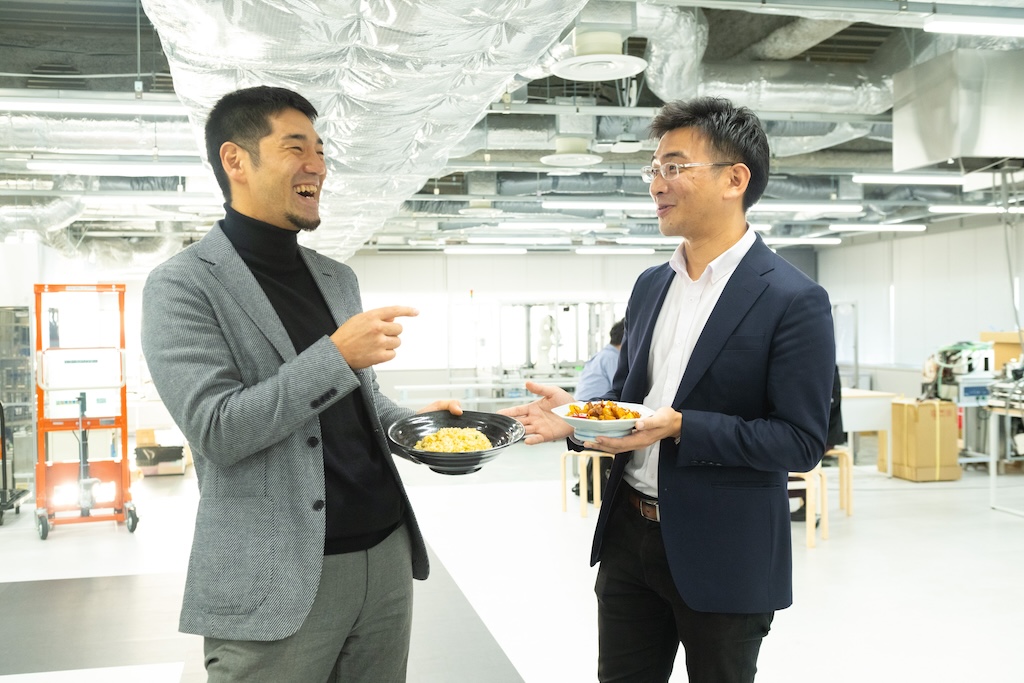
Yuji Shiraki
TECHMAGIC Co., Ltd. Representative Director and CEO
At Bunboston Consulting Group, he is active in a wide range of project projects including new business, global strategy, and organizational reform, mainly in the telecommunications and manufacturing industries. He is participating in a government project to resolve the labor shortage in Japan. He has knowledge of digital transformation and productivity improvement using aluminum and robots.
Studied abroad in Canada for high school and university, and completed CORe at Harvard Graduate School. She started a business during her university days and has a track record of exiting it. Founded TECHMAGIC in 2018.